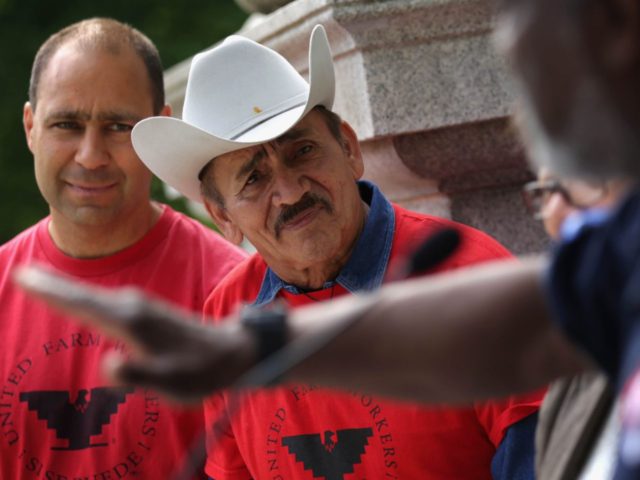The California Supreme Court ruled that the state’s “Mandatory Mediation and Conciliation” process, which allows state mediators to impose binding contracts between farmers and unions when negotiations break down, is constitutional.
In May 2015, California’s 5th District Court of Appeal ruled in favor of Gerawan Farming, which employs 5,000 workers to farm 12,000 acres of tree fruit and grapes in Fresno and Madera counties. The court held that “union mandatory mediation and conciliation (MMC) violated ‘equal protection principles’ that constituted an improper delegation of legislative authority.”
But the California Supreme Court ruled unanimously in a 45-page opinion on November 27 that “the MMC (mandatory mediation and conciliation) statute neither violates equal protection nor unconstitutionally delegates legislative power.”
The roots of the case date back to Governor Jerry Brown establishing the Agricultural Labor Relations Board (ALRB) in 1975 during his first term. The board was supposed to serve as an independent labor panel, modeled after the National Labor Relations Board. But the ALRB morphed into a union ally by attempting to force agricultural companies to implement contracts with the United Farm Workers (UFW).
ALRB “certified” the UFW in 1992 as the exclusive union bargaining representative for 3,000 Gerawan employees, but no contract was negotiated between Gerawan and the UFW for more than 20 years. Gerawan demonstrated that it had not heard from the UFW until October 2012, when the union demanded that contract negotiations be reopened.
Gerawan employees, who are paid some of the best farm wages in their communities, seemed very unhappy about having to start paying union dues each month.
They held a Nov. 2013 election on whether to “decertify” the UFW as their bargaining agent. When it appeared that the union was about to lose, ballots were impounded by the ALRB and have never been counted because the ALRB claims it is trying to determine whether there was merit to UFW allegations that employees were pressured to reject the UFW.
But under ALRB rules, Gerawan was denied the right to begin mediation with the union until after the votes were officially counted by the ALRB. Without the vote count ever being completed, ALRB rules required Gerawan’s 5,000 workers join the UFW and pay dues.
The ALRB has never ruled on decertification. In of this year, about 150 Gerawan Farm field workers protested at the Fresno ARLB offices with signs demanding, “Count My Vote.”
The California Supreme Court also reversed the appeal court’s unanimous ruling that the ALRB should have given Gerawan an opportunity to show that the UFW union had abandoned the workers. But the California Supreme Court ruled that “a union remains certified until decertified by the employees in a subsequent election.”
Gerawan’s attorney, Ron Barsamian, issued a statement that the company intends to ask the U.S. Supreme Court to overturn the California Supreme Court’s decision.

COMMENTS
Please let us know if you're having issues with commenting.